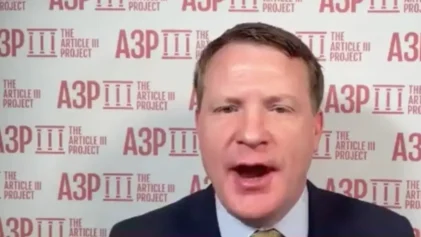An uneasy truce in El Salvador between two murderous gangs has led to a precipitous drop in murder and violent crime in this Central American nation, but the gang members say they need jobs and livelihoods to support themselves now.
In fact, the truce between the two largest gangs, Mara Salvatrucha and Barrio 18, has been so strictly enforced over the last five months that gangs have actually killed their own members for violating it, according to a extended profile in the New York Times.
The leaders of the two gangs actually sat across from each other at a maximum security prison in El Salvador and negotiated a peace treaty—helped by the government’s offer to transfer 30 leaders to less-restrictive conditions. These men who between them have been responsible for the deaths of thousands of El Salvadorian citizens shook hands on a pact to stop the killing.
“We said we have to talk because things are getting out of hand,” said Carlos Tiberio Valladares, a leader serving time for murder who has tattoos of his gang etched across his face. “No one is going to tell you they want their kids to continue on this path.”
As a result of most of the 30,000 to 50,000 gang members laying down their weapons, there has been a precipitous drop in violence. In this nation of 6 million, homicides are down 32 percent in the first half of this year; kidnappings have fallen 50 percent; and extortion has declined nearly 10 percent, according to the Salvadoran security ministry.
“This is a historic moment in El Salvador,” said Alex Sanchez, a former Salvadoran gang member who directs Homies Unidos, an antiviolence program in Los Angeles. “If we lose this moment, we lose the moment of a lifetime.”
The gangs can actually trace their roots to the streets of Los Angeles, where they grew after young men fled the civil wars of Central America in the 1980s—and then were sent back home for committing crimes in the U.S.
Now the gang members, many branded with tattoos from head to toe, are talking about working instead of stealing to make ends meet. But they also talk about needing jobs.
“We have shown good will,” said Victor Antonio García, a Barrio 18 leader deported from Los Angeles. “But now the government has to get involved. We need, like, an affirmative action law here for gang members who quit and need jobs.”
Last month, the gang leaders actually sat down with José Miguel Insulza, the secretary general of the Organization of American States. Insulza made the same moves he would at a summit meeting of regional leaders. He called the truce a promising turn in stemming the tide of violence in Central America. Later, six masked men symbolically laid down high-powered weapons at his feet.
“If the presence of the O.A.S. secretary general helps in this peace proposal, I will be here,” Insulza said.
According to The Times, Behind bars, the hopeful talk of peace is tempered with a growing impatience.
“This peace process is hard to maintain,” said García, the Barrio 18 leader.
Ludwig Rivera, 28, a Barrio 18 leader with tattoos nearly covering his face, said: “It’s not that the truce is weak. We feel it is strong. But the lack of involvement of the authorities and the public could make it weak. They all think we are animals, but we have rights and we are taking a step, so they should take a step” by investing in rehabilitation programs.
Authorities in the prisons take no chances—the rival gangs are still kept in separate prisons. “We are not there yet,” Rivera said of the idea of sharing a cell with a Mara Salvatrucha member. “The feelings are still too strong.”


